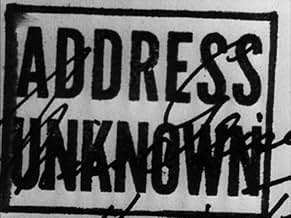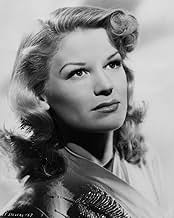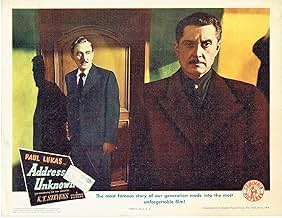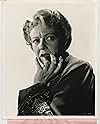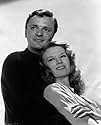A U.S.-based art dealer travels to his former homeland of Germany, where he becomes dangerously susceptible to Nazi propaganda.A U.S.-based art dealer travels to his former homeland of Germany, where he becomes dangerously susceptible to Nazi propaganda.A U.S.-based art dealer travels to his former homeland of Germany, where he becomes dangerously susceptible to Nazi propaganda.
- Director
- Writers
- Stars
- Nominated for 2 Oscars
- 1 win & 2 nominations total
- Youngest Schulz Boy
- (as Larry Joe Olsen)
- Rock-Tossing Rioter
- (uncredited)
- Nazi Party Member
- (uncredited)
- Director
- Writers
- All cast & crew
- Production, box office & more at IMDbPro
Featured reviews
As such it is not only a brilliantly conceived horror story of how an evil idea poisons a society but how it continues on to destroy life.
The small book was re-issued in 2001 by Washington Square Press and at this writing currently available. No matter how you reacted to the movie this is a must read. It can be read in a single, short sitting but it packs an incredible wallop. The little story is compared to the best writing of O. Henry for its sly plot twists and lauded by Kurt Vonnegut who compares it to WWII as what Uncle Tom's Cabin was to the Civil War.
You can then return to the movie and enjoy it at a far deeper and more profound level. Beyond all of that if Paul Lukas is in a film, any film, you can trust that it is worth watching if only for his performance.
The story concerns two German art dealers in San Francisco circa 1932, Martin (Lukas) and Max Eisenstein (Carnovsky). It falls to Martin to return to Germany with his family to buy and ship art work back to the U.S. gallery. With him and the family is also Griselle, Martin's son's (van Eyck) fiancée, who has acting aspirations and wants to work overseas.
Martin becomes seduced by the "new Germany" under Hitler and becomes friends with a baron (Carl Esmond) who encourages him to break ties with his Jewish partner, which he does. The baron also learns that Griselle, who uses the last name Stone, is Jewish. Griselle has a part in a play, and the Nazis have forbidden certain lines to be spoken from the Beatitudes. Griselle says them anyway, and, outed as a Jew by someone at the performance, she runs for her life. She makes her way to Martin's place, where she is turned away.
Martin starts to receive letters from Max that are written in obvious code, giving dimensions of Picassos and having certain numbers substituted for numbers previously sent. The baron warns him that sending and receiving codes is illegal. Martin denies that he is receiving coded letters, meanwhile begging Max to stop writing to him.
The film is very well done in a film noir style, and you can't go wrong visually with Menzies and with Rudy Mate on the camera. The shadows and camera angles are striking, particularly in the play scene and when Martin is alone in his house toward the end of the film. Well worth seeing for the art direction and cinematography alone.
In the actual story, Martin and Griselle have had an affair previously, and Griselle is actually Max's sister. The joke painting that Martin sends back to San Francisco that Max tries to hide from a customer is actually a Picasso - I'm not sure that was made clear in the film.
The action in this film, Martin's turning etc., take place seemingly very quickly and don't come off as believably as in the book, which is actually a series of letters. It has been republished, translated into many languages, and also turned into a play and adapted for radio; it was considered very important at the time it was published, so important that it was felt "too strong" to have been written by a woman, so Katherine Taylor used her maiden name instead to get Kressman Taylor.
The ending pf the film is unexpected. Very suspenseful and absorbing and amazing to look at - with a wonderful performance by Paul Lukas and the rest of the cast - Address Unknown is highly recommended.
Lukas and Morris Carnovsky play partners in San Francisco with their art dealing business. Nursing a bit of nostalgia for Germany, the Wilhelmine Germany he grew up in Lukas moves back to Germany as he says it might be better business wise for him to acquire the art on the scene and for Carnovsky to sell it in America. With the exception of his oldest son Peter Van Eyck who stays with Carnovsky, Lukas moves wife Mady Christians and his children back to Germany post World War I. Later on Carnovsky's daughter K.T. Stevens goes to Europe to pursue her acting career. Carnovsky is also Jewish.
Which is not looked kindly on by people who are rising in power. But Lukas who probably was not all that political is seduced by all the promises the Nazis and their leader. He gradually loses his entire moral compass. In that he was far from alone. K.T. Stevens is the one who loses her life tragically.
Lukas and Carnovsky are an interesting story of old friends torn apart. Carnovsky registers well as a man who cannot believe his old friend has turned on their past friendship and what it meant for business and personal reasons. Carnovsky cannot comprehend what is happening in the old homeland. In that he wasn't alone, those targeted by the Nazis including Jews couldn't quite believe it either. Remember Address Unknown was made before the concentration camps were liberated, but rumors were growing stronger by the day about what was happening.
As for Lukas he's brilliant with what he does as a man who loses it all. The ending is a truly original piece of vengeance and betrayal of Lukas, fitting payback for all he betrayed.
Address Unknown got two Oscar nominations for Art&Set Design and for music score. With William Cameron Menzies directing I'm sure he had a big hand in creating the set that got said nomination. But with what he does with Lukas and Carnovsky, Menzies shows how well he can direct people too.
One of the better films to come out of the World War II era it holds up brilliantly for today.
I feel that the opening scenes are very good and authentically display the friendship between Max and Martin and their families and this of course makes the story all the more powerful.
I have read the short story/book on which the film is based - it is available to borrow from the Internet Archive on line free library - and in my opinion this one if the rare occasions when the film is better than the book, largely due to the devastating end twist in the film.
Did you know
- TriviaK.T. Stevens (real name: Gloria Wood) is the daughter of the film's producer, Sam Wood.
- GoofsWhen Griselle first puts her bloody hand on the frame of Schulz's entrance door after he opens up, the right hand is placed at a certain height and angle while the fingers are spread in a certain shape. But in the following cuts, the hand and fingers have constantly changed angles and positions. In addition, the shape of the bloody hand-print left on the door frame after Schulz closes the door does not match the shape and location Griselle originally placed her hand.
- Quotes
Baron von Friesche: Does he know the conditions he doesn't like? I find that hard to understand. I myself would hesitate to form conclusions without firsthand evidence. You must set him right. I suppose it isn't easy for a foreigner to understand the agonies our people have suffered since the Treaty of Versailles. What years of less and less bread, of leaner bodies, of the end of hope...
[pauses to offer Herr Schulz a cigarette]
Martin Schulz: [accepting a cigarette] Oh, thank you.
Baron von Friesche: The quicksand of despair held us. Then just before we died, a man came and pulled us out.
Baron von Friesche: [turning to Herr Professor] You are a native of Munich, Herr Professor?
Professor Schmidt: Well, uh...
Baron von Friesche: You have *witnessed* this deliverance.
Professor Schmidt: If it *is* a deliverance...
Baron von Friesche: [turning to Herr Schulz] You know, there's a surge, my friend. A surge. Our whole despair has been thrown aside like a forgotten coat. No longer do we wrap ourselves in shame.
Baron von Friesche: [turning to Herr Professor] What can be wrong about a man who affects people so?
Professor Schmidt: When people are hungry, they don't care *what* kind of a man it is who gives them bread.
- Crazy creditsThe final fade-out is a closeup of the returned letter, specifically the "Address Unknown" stamped in English. It forms an end title card, which was itself unusual for its time.
Details
- Release date
- Country of origin
- Languages
- Also known as
- Адрес неизвестен
- Production company
- See more company credits at IMDbPro
- Runtime1 hour 15 minutes
- Color
- Aspect ratio
- 1.37 : 1
Contribute to this page



